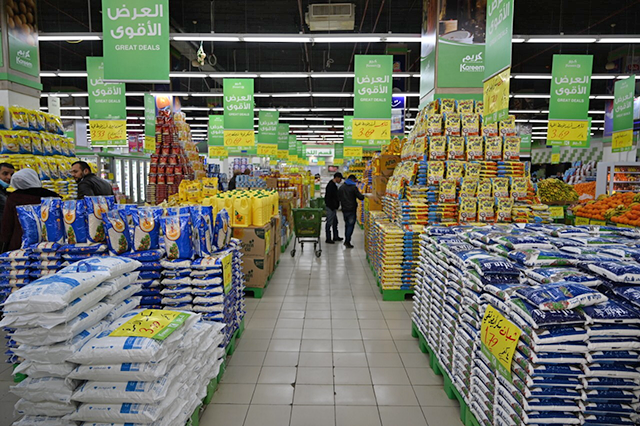You are here
Inflation continues to drive food price increases, sparking concerns ahead of Ramadan
By Maria Weldali - Feb 18,2025 - Last updated at Feb 18,2025

With Ramadan approaching, concerns over rising food costs are intensifying, as Jordanian households brace for higher consumption during the holy month (JT file)
AMMAN — Food prices in Jordan have increased by 3.1 per cent in January, marking the third consecutive month of rising costs, according to the Department of Statistics (DoS).
The uptick aligns with a broader surge in consumer prices, indicating persistent inflationary pressures.
The latest World Bank report highlighted fluctuations in the Kingdom’s price index, noting a 1.2 per cent increase in December and a 2.6 per cent rise in November.
October saw a slight dip of 0.7 per cent, following a marginal 0.1 per cent uptick in September. Food prices had risen by 2.8 per cent in August, 2.6 per cent in July, 2 per cent in June, and 2.1 per cent in May.
With Ramadan approaching, concerns over rising food costs are intensifying, as Jordanian households brace for higher consumption during the holy month.
“The prices of essential goods, particularly imports, have been steadily climbing, putting added pressure on both consumers and retailers,” said Waleed Ali, a supermarket owner in Amman.
Many citizens are expressing frustration with the ongoing price hikes. “We expect price increases before Ramadan each year, but this time, the rise feels more significant,” said Ahmed Rakan, a father of three.
Khaled Odeh, an employee at a supermarket chain in Amman, said, “Despite the rising prices, there are still many discounts and offers for Ramadan shoppers.”
In response to growing concerns about food security, the Jordanian Food Security Council recently approved its Food Security Action Plan for 2025-2027.
The council has also proposed elevating its status to the “Supreme Council for Food Security,” which would be chaired by the prime minister, to strengthen its role in ensuring market stability and a sustainable food supply.
As inflationary pressures persist, policymakers and industry stakeholders continue to monitor price trends closely, seeking measures to mitigate the economic impact on households ahead of Ramadan.
Related Articles
AMMAN — The Lower House Economic and Investment Committee, led by MP Omar Naber on Wednesday discussed with Deputy Prime Minister for Econom
AMMAN — Economic experts attribute Jordan’s widening trade balance deficit during the first quarter of 2022 to global factors related to inf
AMMAN — The industrial producer price index (PPI) increased by 0.23 per cent year-on-year in January 2025, reaching 107.13 points compared w














